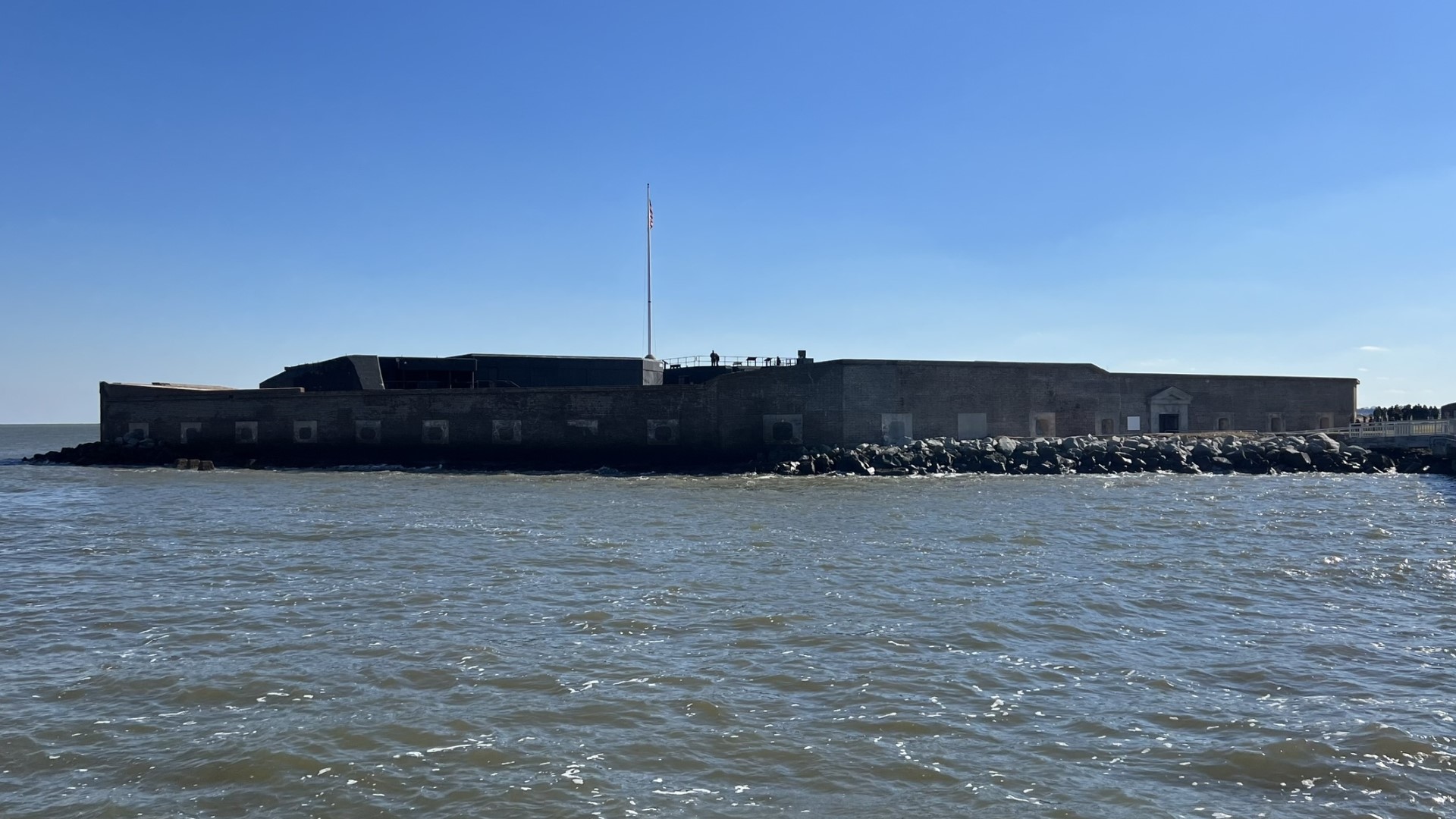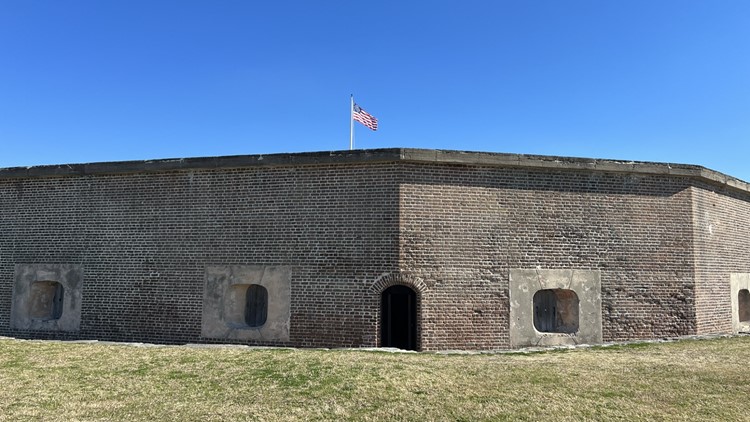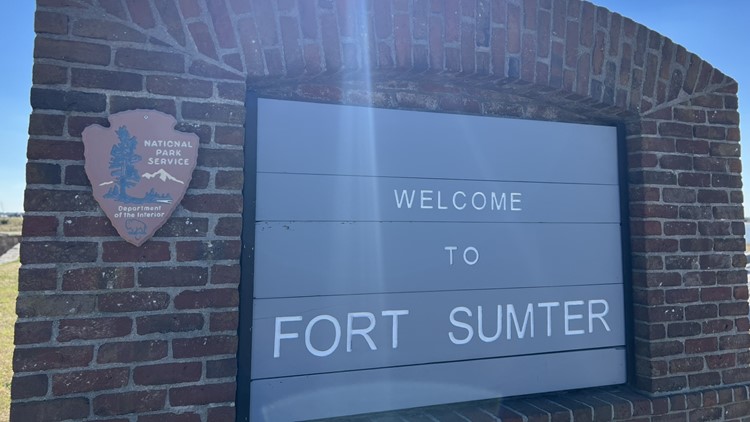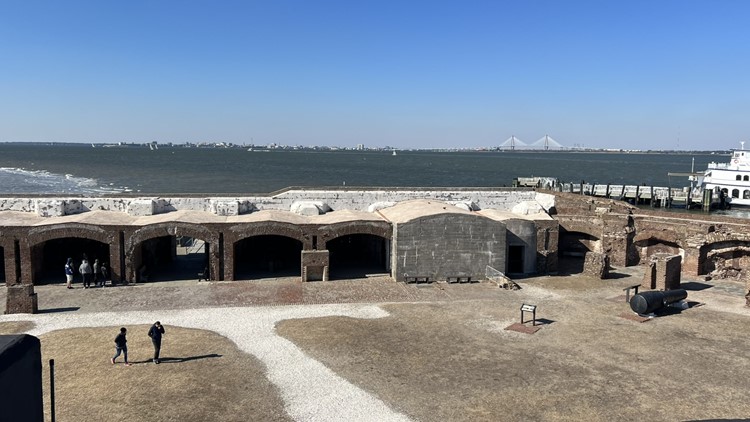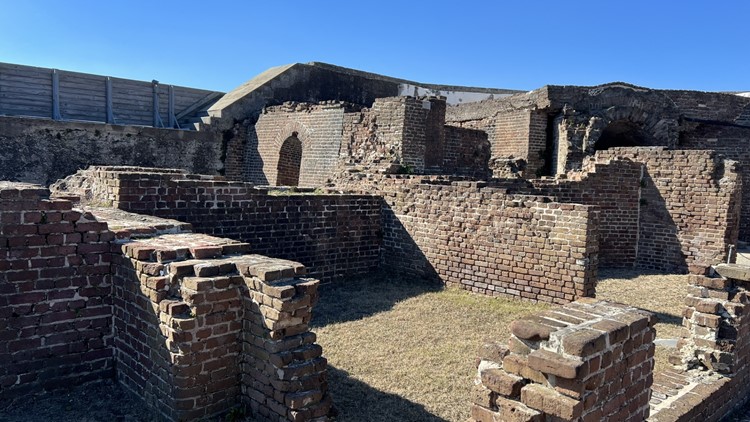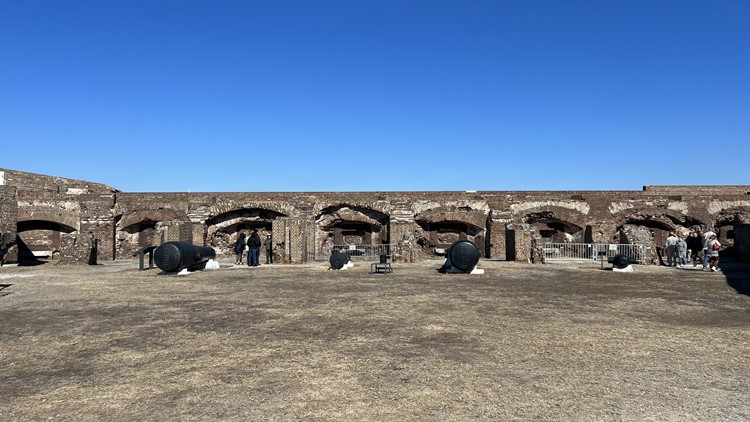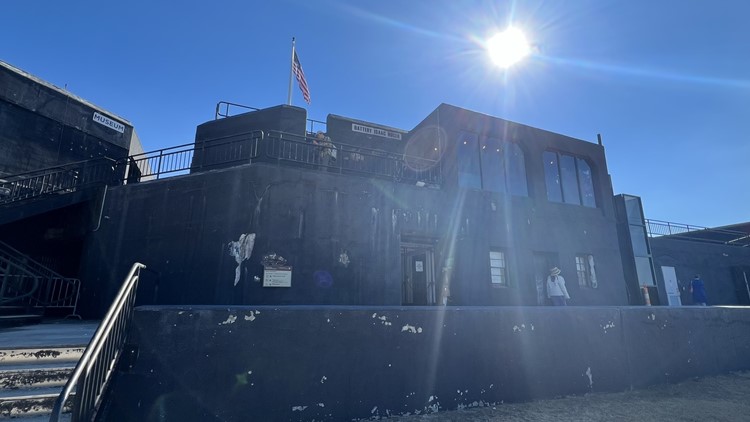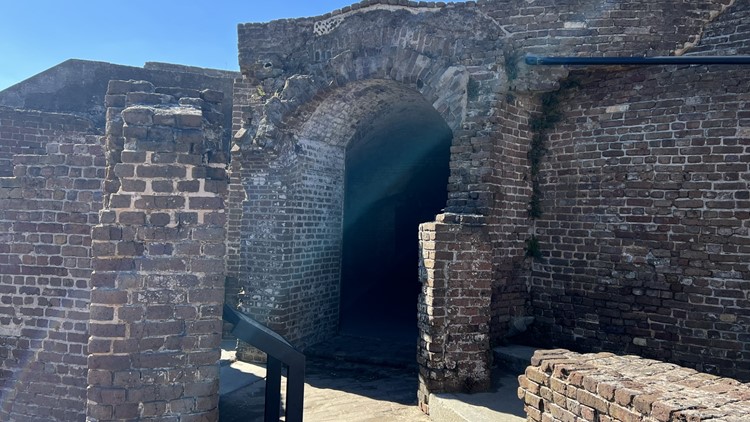CHARLESTON, S.C. — It sits in the middle of Charleston Harbor, 3.4 miles from the southside of town, but it was what happened at Fort Sumter that forever changed this country and started a bloody four-year war that took nearly 700,000 lives.
The only way to access this historic national park is by boat, and from here, you can only imagine what it was like at 4:30 a.m., April 12, 1861, when Confederate forces fired the first shot, and the Civil War began.
Thousands visit Fort Sumter every year, and most come away with a new appreciation for this nation and the devastating war that brought an end to slavery but also brought changes in what the United States would become, with ramifications to this day.
For years, Rick Hatcher was the historian here. This author and Civil War expert says that before the first shot was fired, people said, The United States are..." After the war ended, it was, "The United States is..."
"The Civil War pretty much decided that we are a permanent union. It gave us that solid unification, and also from there, we will then proceed to settle the west and also helped us to eventually become a world player," Hatcher said.
Visiting this historic fort gives you a glimpse, but just a glimpse, of what life was like in the 1860s for troops here. Much of the upper layer of the fortress is gone, but much still remains, including shells stuck in one of the walls.
The first group to arrive every morning gets to participate in a flag-raising time, a very moving start to the trip. The museum onsite actually offers a glimpse into not just Fort Sumter's Civil War history but also the role this place and Charleston Harbor played in the War of 1812.

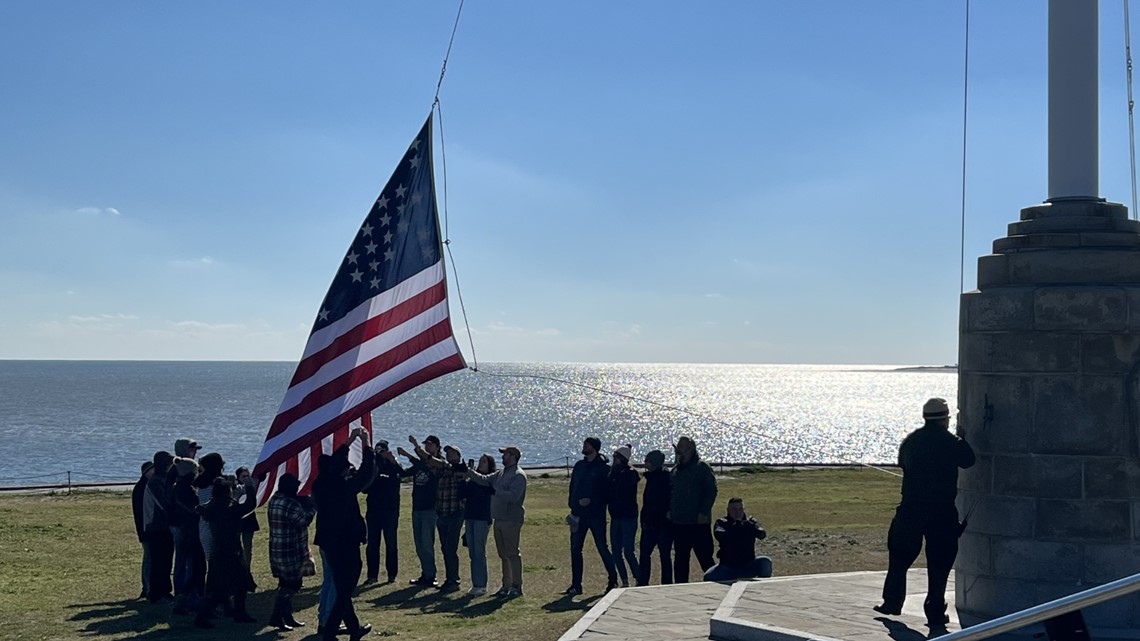
I took time looking at the cannon on property. To think of the amount of firepower aimed at Fort Sumter and simultaneously fired from the island is jaw-dropping and reminded me of the sheer terror and danger soldiers here faced.
"Can you imagine a 128-pound cannonball skimming across the surface of the water? They call it ricochet fire. So, if you've ever taken a flat stone and skipped it over a creek or pond or whatever, imagine doing that with a 400-pound cast-iron ball, moving at over 1,000 feet a second," Hatcher said.
Those bombings during the war laid to rest much of Fort Sumter in 1863.
"After the Civil War, this area was essentially a rubble pile. In the course of the first major bombardment of the fort, they directed most of their artillery fire at the gorge wall and essentially knocked it down. They fired 522,000 pounds of artillery projectiles directed at that one wall — in one week."
What is left is what visitors see today — still imposing, but only a shell of the Fort Sumter that existed in 1861.
Fort Sumter
It is the violence, the resolve and the history of this place that drew in our Chuck's Big Adventure team, and National Park Ranger Christopher Reid feels this compelling story is one every American should ponder, and he recommends families visit the Fort.
"Fort Sumter is one of a kind. There is no other place in the world where the American Civil War started, so this is the only place where it started, and it is unique in that regard," Reid said. "It's a very important place in our nation's history to discuss why the Civil War happened. We're still talking about it. We are talking about the names, the flags, the monuments, the places. It has impacted our society and our country in such a profound way that I think it is important to come out to see where it started and why it happened and the repercussions from it."


The Civil War is America's deadliest war, with Reid saying current estimates taking about 700,000 lives.
"The Civil War begins here, and the end of the war results in the beginning of freedom for over 4 million people previously enslaved," Reid said. "It's just the beginning of freedom because they will still have to wait for a 13th, 14th, 15th amendment and the Voting Rights Act of 1965."
Fort Sumter is a must-see on any trip to Charleston.. Be prepared — it can get rainy and cold or very hot, up to 105 in the summer. The National Park Service says be cognizant of the weather, stay hydrated and be prepared to immerse yourself in history.
This is the perfect place to get a transparent look at what America was — and how it became what it is now.
More of Chuck's Big Adventure in Charleston:
- Chuck's Big Adventure in Charleston: Old South Carriage Company
- Chuck's Big Adventure in Charleston: The Plantation Singers
- Chuck's Big Adventure in Charleston: Lowcountry Oyster Co. & cooking with Chef Kevin Mitchell
- Chuck's Big Adventure in Charleston: South Carolina Aquarium
- Chuck's Big Adventure in Charleston: Coastal Expeditions
- Chuck's Big Adventure in Charleston: The Gullah Experience
- Chuck's Big Adventure in Charleston: Charleston Tea Garden
- Chuck's Big Adventure in Charleston: Southern fashion

